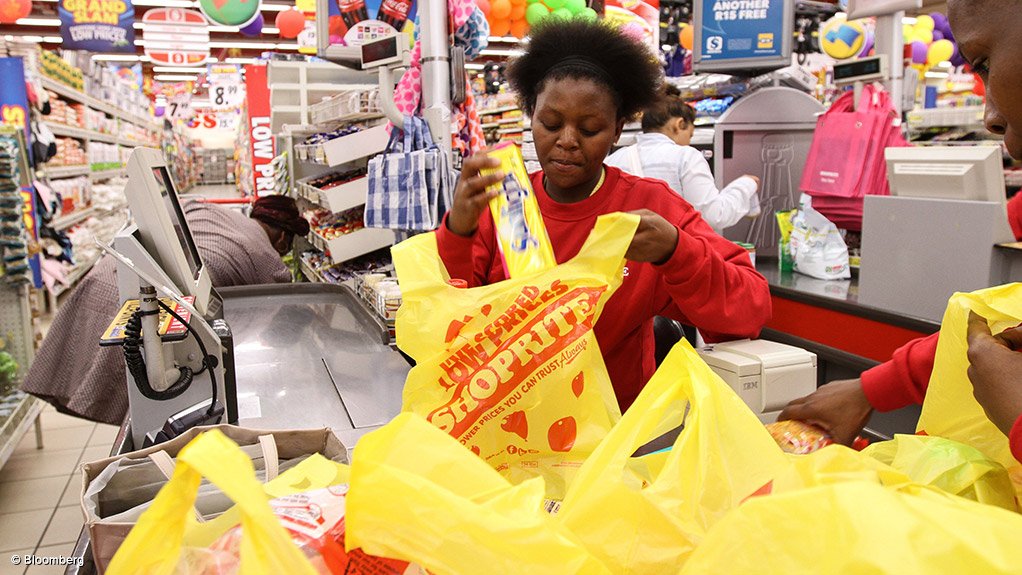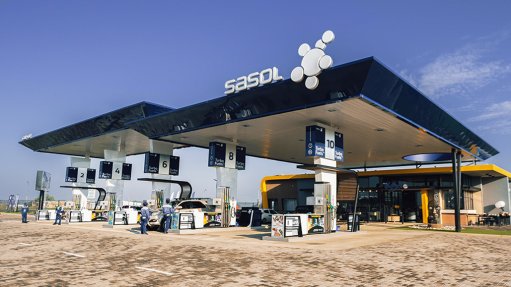R1.1bn collected since launch of plastic bag levy


PLASTIC POLLUTION Since its introduction, the plastic bag levy has reduced the use of plastic bags from ten-billion to four-billion bags a year, an estimated reduction in use of between 45% and 75%
Photo by Bloomberg
Since the introduction of the plastic bag levy scheme in 2004, more than R1.1-billion has been collected and deposited into the National Revenue Fund, from which R216-million was allocated up to the end of August to the Department of Environmental Affairs (DEA) for recycling initiatives.
The levy was introduced to tackle the environmental impact of plastic shopping bags as litter on fences, trees, open veld and at waste facilities using normal refuse collection systems.
The DEA initially aimed to ban plastic shopping bags, but this would have resulted in job losses in the plastics industry. Therefore, a memorandum of agreement was entered into by government, organised labour and business.
Since its introduction, the levy has reduced the use of plastic bags from ten-billion to four-billion bags a year, an estimated reduction in use of between 45% and 75%.
However, according to the National Treasury, a more recent trend shows an increase in producing and importing plastic bags.
The levy was introduced at 3c a bag in 2004, payable by plastic bag manufacturers and importers. It increased to 4c a bag in 2009 and to 6c a bag in 2013.
According to a report released by the National Treasury, it is necessary to increase the levy from time to time as the levy is a specific tax and to “ensure that inflation does not erode the real value of the tax”.
Part of the R216-million allocated to recycling initiatives went to nonprofit company Buyisa-e-Bag, which was funded through transfers from the fiscus through the DEA on the basis of approved business plans that were submitted to the department.
The company was established to promote plastic-bag recycling, waste reduction, awareness in the plastics industry and expansion of collector networks, as well as increase job creation and capacity building, and support the collection of plastic bags in rural areas through small and medium-sized enterprises.
According to the DEA, Buyisa-e-Bag had established 15 plastic buy-back centres and supported 25 existing facilities.
The buy-back centres and recycling facilities were established in the Mhluzi and Govan Mbeki municipalities, in Mpumalanga, in 2007 and 2009 respectively.
In the 2010/11 financial year, Buyisa-e-Bag was absorbed into the DEA.
About R11-million of the reprioritised funding was allocated to the National Regulator for Compulsory Specifications to implement the regulations pertaining to plastic bags and more than R31-million was allocated to the department’s Programme 6: Environmental Programmes.
Comments
Press Office
Announcements
What's On
Subscribe to improve your user experience...
Option 1 (equivalent of R125 a month):
Receive a weekly copy of Creamer Media's Engineering News & Mining Weekly magazine
(print copy for those in South Africa and e-magazine for those outside of South Africa)
Receive daily email newsletters
Access to full search results
Access archive of magazine back copies
Access to Projects in Progress
Access to ONE Research Report of your choice in PDF format
Option 2 (equivalent of R375 a month):
All benefits from Option 1
PLUS
Access to Creamer Media's Research Channel Africa for ALL Research Reports, in PDF format, on various industrial and mining sectors
including Electricity; Water; Energy Transition; Hydrogen; Roads, Rail and Ports; Coal; Gold; Platinum; Battery Metals; etc.
Already a subscriber?
Forgotten your password?
Receive weekly copy of Creamer Media's Engineering News & Mining Weekly magazine (print copy for those in South Africa and e-magazine for those outside of South Africa)
➕
Recieve daily email newsletters
➕
Access to full search results
➕
Access archive of magazine back copies
➕
Access to Projects in Progress
➕
Access to ONE Research Report of your choice in PDF format
RESEARCH CHANNEL AFRICA
R4500 (equivalent of R375 a month)
SUBSCRIBEAll benefits from Option 1
➕
Access to Creamer Media's Research Channel Africa for ALL Research Reports on various industrial and mining sectors, in PDF format, including on:
Electricity
➕
Water
➕
Energy Transition
➕
Hydrogen
➕
Roads, Rail and Ports
➕
Coal
➕
Gold
➕
Platinum
➕
Battery Metals
➕
etc.
Receive all benefits from Option 1 or Option 2 delivered to numerous people at your company
➕
Multiple User names and Passwords for simultaneous log-ins
➕
Intranet integration access to all in your organisation



















